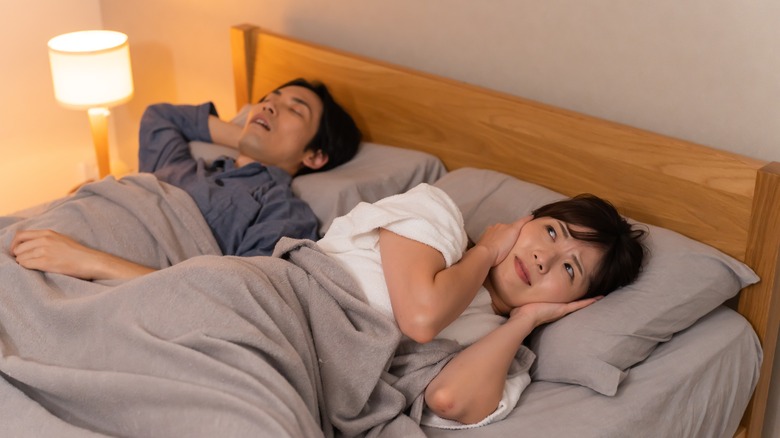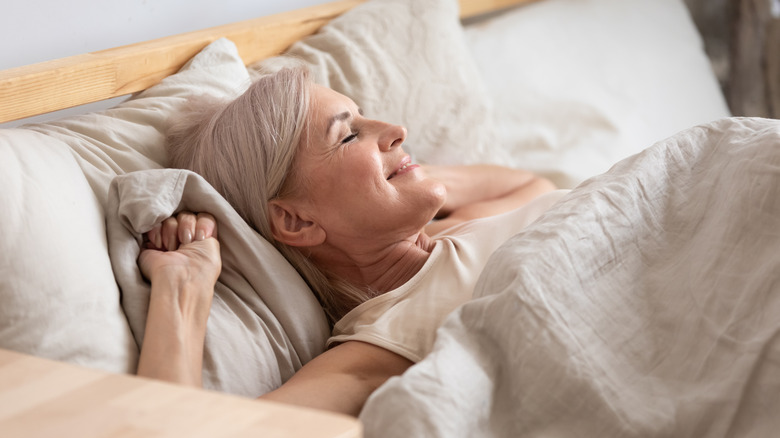The Health Benefits Of Sleeping In A Separate Bed From Your Spouse, According To A Clinical Psychologist
We know that a good night's sleep is critical to feeling our best. Without it, we might start to feel irritable, cranky, and unfocused. But what if poor sleep is caused by sharing a bed with a partner? While it may seem strange to some, there might actually be health benefits to sleeping apart.
In an exclusive interview with Health Digest, Dr. Shelby Harris, Director of Sleep Health at Sleepopolis and a licensed clinical psychologist specializing in behavioral sleep medicine, shares how to know if you should try sleeping apart and why you might try it. In her work, Dr. Harris treats a wide variety of sleep disorders, including insomnia, nightmares, and narcolepsy, with a focus on non-pharmacological interventions.
The average adult needs at least seven hours of uninterrupted sleep each night, according to the U.S. Centers for Disease Control and Prevention (CDC). But if you're not getting quality sleep, your health could be at risk. "Routinely getting poor sleep can lead to resentment, frustration, and unhappiness that negatively affects your relationships and overall quality of life," Dr. Harris explains. If you and your partner have different sleep patterns, habits, or preferences, you could be lacking quality sleep and might consider whether sleeping separately could help.
Why sleeping separately might help your health
It might seem counterproductive, but couples who sleep apart may actually improve their relationships, according to Dr. Harris. "Sleeping separately can oftentimes bring couples closer together, improve their mood, and strengthen their connection as a couple as it lets go of any resentment related to poor sleep," she says. There are health benefits to getting good sleep too, including improving memory, strengthening the immune system, and decreasing the risk of significant health problems.
Worried about intimacy? Dr. Harris told Health Digest, "There can be a lot of concern and questions over finding times for intimacy if couples choose to sleep separately. Scheduling sex regularly, or picking one bed that is used for sex and cuddling, can help ensure that both your physical needs are being met once you're no longer sleeping in the same bed together."
If you're considering trying this out, make sure there's a joint conversation around the topic, rather than blaming a partner for lack of sleep. "Try to approach the topic as a health and emotional regulation concern that you have for both yourself and your partner," says Dr. Harris. "Both partners in the relationship should want to feel their best during the day so that they can be stronger as a couple."
Dr. Shelby Harris is the Director of Sleep Health at Sleepopolis and a licensed clinical psychologist specializing in behavioral sleep medicine. To find out more about Dr. Harris, find her on her Instagram and visit her on Sleepopolis.


